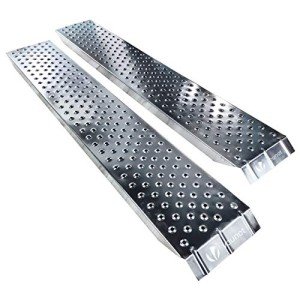Guide To Disability Ramps: The Intermediate Guide On Disability Ramps
페이지 정보
작성자 Brendan 작성일 25-11-11 17:51 조회 2 댓글 0본문

Understanding Disability Ramps: A Comprehensive Guide
In a world that intends to be inclusive and available to all individuals, disability ramps play an important role in bridging the gap in between different capabilities. These essential structures make it possible for people with mobility problems to access buildings and public areas securely and easily. In this post, we will check out the different aspects of disability ramps, including their types, benefits, policies, and setup considerations.
What Are Disability Ramps?
Disability ramps, likewise known as wheelchair ramps, are inclined surface areas designed to help people with mobility obstacles in accessing elevated surfaces, such as buildings, pathways, and vehicles. They are essential components of universal style-- an idea that promotes accessibility for people of all abilities.
Types of Disability Ramps
There are several types of disability ramps, each serving particular requirements and environments. Below is a table detailing the most typical types:
| Type of Ramp | Description | Perfect Use Cases |
|---|---|---|
| Portable Ramps | Lightweight, foldable ramps developed for temporary usage. | Home usage, temporary events, traveling. |
| Foldable Ramps | Similar to portable ramps but more robust; can be used in cars. | Cars, homes, temporary structures. |
| Long-term Ramps | Built-in ramps made of concrete or wood, developed for long-lasting usage. | Long-term buildings, public spaces. |
| Threshold Ramps | Short ramps developed to fill the gap triggered by door thresholds. | Home entryways, entrances, and gateways. |
| Modular Ramps | Pre-fabricated ramps made from aluminum that can be put together on-site. | Industrial structures, public locations. |
Benefits of Disability Ramps
The addition of disability ramps is not just a regulative requirement but likewise an ethical responsibility. The advantages of installing disability ramps extend far beyond simple compliance. Here's a list of the benefits:
Increased Accessibility: Ramps develop a pathway for individuals who utilize wheelchairs, scooters, or other mobility gadgets, enabling them to access structures and public areas without obstacle.
Boosted Independence: With the provision of ramps, individuals with mobility challenges can navigate their surroundings more easily, promoting independence and self-sufficiency.
Legal Compliance: Various policies and laws, consisting of the Americans with Disabilities Act (ADA), make it mandatory for public and personal entities to provide available facilities.
Improved Safety: Ramps decrease the risk of mishaps connected to stair access, using a more secure option for people with mobility impairments.
Inclusivity and Community Building: Installing ramps demonstrates a dedication to inclusivity, fostering a sense of community and approval among people of all abilities.
Laws and Standards
When installing disability ramps, adhering to particular policies and standards is important. In the United States, the Americans with Disabilities Act (ADA) supplies guidelines governing ramp building and construction. Below are a few of the key technical requirements:
| Specification | Requirement |
|---|---|
| Slope ratio | Minimum 1:12 (increase to run) |
| Width | Minimum of 36 inches |
| Surface | Non-slip, firm surface |
| Height | Maximum rise of 30 inches without landings |
| Handrails | Required for ramps over 6 inches increase |
These specs guarantee that ramps are safe and functional for their intended users. Regional building regulations ought to also be spoken with, as they might have extra requirements.
Installation Considerations
Setting up a disability ramp involves mindful planning and execution. Here are several elements to consider throughout the process:
Site Evaluation: Assess the area where the ramp will be installed. Consider the existing terrain and any obstacles that may impact accessibility.
Licenses and Compliance: Determine if regional policies need licenses for ramp setup. Make certain to follow constructing codes and ADA standards.
Product Selection: Select suitable materials that are long lasting and efficient in withstanding weather conditions. Common materials include wood, aluminum, concrete, and fiberglass.
Design Features: Ensure the ramp integrates style features such as handrails, landings for rest, and surface area textures to prevent slips and falls.
Maintenance: Schedule routine evaluations and upkeep to ensure ramps stay safe and practical in time. Address issues such as wear and tear, surface damage, or blockages.
FAQ About Disability Ramps
1. How steep can a disability ramp be?The ADA
suggests a maximum slope of 1:12 for wheelchairs, suggesting for each inch of height, there ought to be at least 12 inches of horizontal run.

2. Are ramps required in personal homes?While not lawfully required for personal homes, installing ramps can significantly enhance availability for household members or guests with impairments. 3. Can ramps be made to fit any space?Yes, ramps can be custom-made or modular to fit a range of spaces, taking into consideration height, width, and site conditions. 4. What are threshold ramps?Threshold ramps work as a bridge over little height distinctions, such as door limits
, to create a barrier-free transition. 5. Are there grants available for installing disability ramps?Various companies and government firms may use funding or grants to assist with availability modifications, consisting of ramp installation. Disability ramps are crucial assets in promoting accessibility and inclusivity in our neighborhoods. By comprehending the types, benefits, and policies connected with these ramps, property owners and
facility supervisors can make informed choices to develop environments that deal with everybody, regardless of their mobility. Eventually, the presence of disability ramps works as a testament to a society that values the self-respect and self-reliance of all its members, paving the way for a more inclusive future.
- 이전글 Window Regulator Repair Tools To Improve Your Daily Lifethe One Window Regulator Repair Trick Every Person Should Know
- 다음글 Play m98 Online casino Online in Thailand
댓글목록 0
등록된 댓글이 없습니다.


